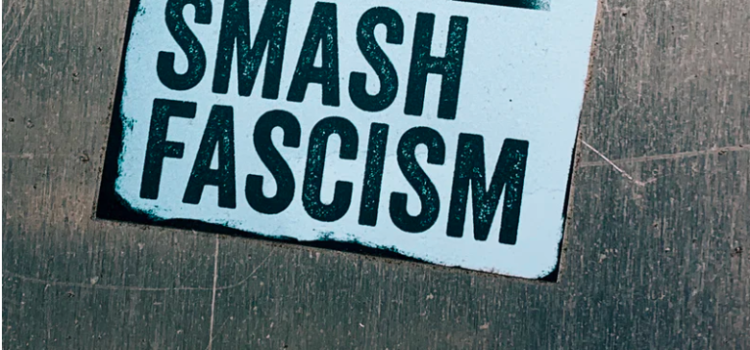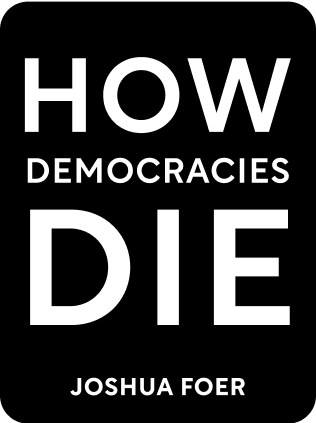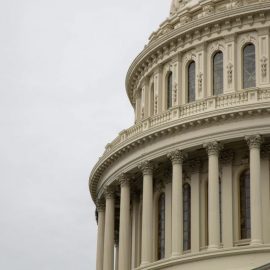

This article is an excerpt from the Shortform book guide to "How Democracies Die" by Steven Levitsky and Daniel Ziblatt. Shortform has the world's best summaries and analyses of books you should be reading.
Like this article? Sign up for a free trial here .
What are authoritarian states? How do authoritarian states develop?
Authoritarian states can develop over time or they can develop rapidly. Typically, it’s more difficult for authoritarian states to develop when there are multiple political parties and democratic safeguards in place.
Read more about authoritarian states and how they are formed below.
Authoritarian States & Political Gatekeepers
One of the primary means by which authoritarians come to power in democratic states is through alliances with establishment politicians. In this chapter, we’ll explore how such alliances come to be, the basic characteristics that are shared by anti-democratic politicians, and the mechanisms by which mainstream political parties have traditionally kept such figures from attaining power.
We’ll also explore some real-world examples of how democracy benefits when political elites successfully perform their gatekeeper role—and the consequences that befall democracy when they don’t.
Identifying Authoritarian States
If we want the political system to reject authoritarians, we need to be able to identify them first. What are some of the warning signs of an anti-democratic figure or movement? The political scientist Juan Linz identified four warning signs of authoritarianism. They single out politicians who:
- Reject the generally accepted rules of democratic competition. A good example of this would be a leader who refuses to accept the results of democratic elections if they are unfavorable to him or his movement.
- Refuse to accept the legitimacy of their democratic opponents. This can be seen in politicians who, with no evidence, accuse their political competitors of being traitors or criminals.
- Endorse or encourage violence. These are leaders who either turn a blind eye to, or actively encourage, acts of violence or sabotage by their political supporters against their political opponents.
- Express a willingness to crack down on civil liberties. A good example of this would be a politician who promises punitive financial or legal action against oppositional media.
Political Parties: Democracy’s Gatekeepers
Now that we know how to identify authoritarians, we can start to think about ways to neutralize them. The institutions best-positioned to safeguard a free society and form of government are mainstream political parties—democracy’s gatekeepers.
By refusing to join in political coalitions with anti-establishment, populist extremists and rooting them out of their own ranks when such figures arise, mainstream parties can greatly limit the growth of anti-democratic forces.
Unfortunately, this is easier said than done. It is often very difficult for politicians and parties to resist the temptation to forge short-term alliances with popular demagogues—particularly if those demagogues are adept at delivering votes. Moreover, it is difficult for mainstream parties to work with their rivals in order to close ranks against a demagogue. This is how authoritarian states can form.
Rules for Protecting Democracy
What are the specific mechanisms by which political parties can keep would-be dictators from ever attaining power? There are four main strategies that political parties can use to act as gatekeepers and prevent authoritarian states:
- Refusing to nominate extremists for office. This means keeping such figures off their party ballots and disavowing them even if they somehow manage to win a party nomination.
- Getting rid of extremists within the party. This means kicking out members who espouse anti-democratic or authoritarian views, even if doing so entails paying a short-term political price.
- Refusing to forge alliances or enter coalitions with anti-democratic parties. This is especially important in parliamentary systems, where coalition governments often need to be formed when no single party wins a majority.
- Working with one’s traditional opponents to form a united front for democracy and close ranks against demagogues. This entails liberal and conservative parties working together to form a united front against anti-democratic forces.
To better illustrate these principles, let’s look at some historical examples of times when political parties acted responsibly to protect democracy, as well some unfortunate cases when they failed to do so.
Austria: Successful Gatekeeping
In 2016, a left-right coalition of parties in Austria helped to defeat the far-right Freedom Party and its presidential candidate Norbert Hofer. Prominent conservative politicians, in particular, crossed party lines to endorse Hofer’s left-wing rival—with whom they certainly had profound ideological disagreements, but who they knew would safeguard democratic ideals. The evidence from the election shows that the united front strategy was effective in defeating Hofer, as many voters from rural and traditionally conservative regions voted for his left-wing rival—following the clear signals sent by party elites that Hofer was unacceptable.
Hugo Chávez and the Death of Venezuelan Democracy
Unfortunately, the opposite dynamic played out in Venezuela in the 1990s with the rise of Hugo Chávez. Chávez was a political outsider and rabble-rouser, a former military officer who had been jailed for insurrection after leading a failed coup. But he became a hero to many Venezuelans for his fiery rhetorical attacks on what he portrayed as a corrupt and decadent political establishment.
The former president Rafael Caldera, seeking to regain his own hold on power, saw that Chávez could have a useful electoral appeal and sought to co-opt it. In 1993, Caldera was elected to the presidency as an anti-establishment independent candidate—all the while mimicking Chávez’s message and rhetorical style during the campaign. Caldera’s success as an independent also heralded the disintegration of the old party system, thus eliminating crucial gatekeepers from Venezuelan politics. Caldera quickly moved to release Chávez from prison, further boosting the latter’s standing as a legitimate political figure.
In 1998, Chávez himself was elected to the presidency and began the work of dissolving democracy and a free press in Venezuela. Caldera, thinking Chávez was merely a passing fad, had badly miscalculated by legitimizing and empowering him—the entire country would pay the price for his miscalculation.

———End of Preview———
Like what you just read? Read the rest of the world's best book summary and analysis of Steven Levitsky and Daniel Ziblatt's "How Democracies Die" at Shortform .
Here's what you'll find in our full How Democracies Die summary :
- How shared norms are essential for preserving democracy
- Why the Trump presidency threatened those shared norms
- Why democracy goes beyond individual leaders and parties and must be a shared enterprise among committed individuals






